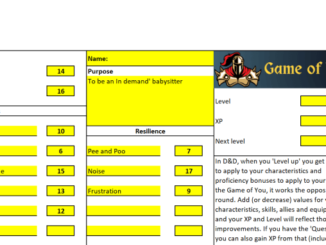
Although playing video games may seem counterintuitive to workplace productivity, the values that people can learn from games may benefit the overall business. In fact, as shared in our article “People as Pieces – Social Mechanics in Games”, the social interaction or dynamics experienced within a game can facilitate learning, from systems thinking to organisational dynamics.
Video games are highly interactive and can be played by oneself or with others, encouraging players to explore and discover different approaches to meeting a goal, handling opponents in clever ways, and even forming alliances, to name a few. These skills can often be translated to real-life events, allowing players to integrate their newfound insights into places like school or work. In this article, we explore the ways in which video games can help you navigate the workplace:
Gaming enhances strategy skills
Businesses always rely on strategic planning to ensure their resources are maximised, while minimising the impact of their weaknesses. As part of making processes more efficient, it’s essential for staff to set proper goals and targets so that everyone in the workplace can have a clear direction. With these values in mind, strategy and simulation games are great options to enhance the decision-making process. For example, the real-time strategy (RTS) game Anno forces its players to strategise and react quickly to situations happening around them. As found in a review on video games from Procedia Computer Science, RTS players outperformed first-person shooter (FPS) players in terms of cognitive flexibility, with the added association that RTS improved with professionals’ decisions and risk assessments. Being able to make informed choices without feeling overwhelmed is a valuable skill in the workplace, allowing workers to be more independent and organised in their work.
Gaming encourages a continuous learning mindset
Many technologies and systems change to adapt to new standards set over time. This often calls for employees to readjust their work styles, and upskill to keep up with the current advancements, requiring them to learn new proficiencies and competencies. LHH’s tips on continuous learning discuss how important it is to show employees the benefits of continuous learning for lifelong employability. This learning mindset benefits companies financially, and also helps current employees stay relevant in the market — even allowing them to undertake advanced job roles. Through playing games, people can better understand what roles they would want to prioritise, depending on their strengths and weaknesses. For example, the well-known role-playing game Elder Scrolls: Skyrim allows players to gain experience points and improve their abilities through skill trees of their choice, depending on what perks they want. By developing their prowess, workers can progress better in the workplace.
Gaming improves teamwork
Teamwork is essential in many areas, be it the workplace setting or cooperative games. A key part of successful group efforts centres around communication, which is often built through team-building exercises. A study on team building by Brigham Young University found that teams that played video games (Halo or Rock Band) together for just 45 minutes before a team task saw a 29.3% improvement in productivity, compared to groups that didn’t play games. This cooperation was particularly successful, as video games are able to scale up their difficulty levels over time, increasing workflow and performance. Even simpler games such as the Overcooked series can replicate this environment, requiring communication and a good division of labour to efficiently run each game level. Gaming provides a great opportunity for company workers to not only bond but also develop their communication, task delegation, and teamwork skills.
- James Bore – The Ransomeware Game - 13th February 2024
- Ipsodeckso – Risky Business - 23rd January 2024
- Review – Luma World Games - 15th December 2023





Be the first to comment